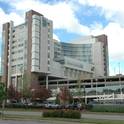Article
Dyssynergic defecation: a treatable cause of persistent symptoms when inflammatory bowel disease is in remission
Digestive Diseases and Sciences
(2013)
Abstract
BACKGROUND: Introduction of biologic agents in inflammatory bowel disease (IBD) has increased the likelihood of disease remission. Despite resolution of active inflammation, a subset of IBD patients report persistent defecatory symptoms.
AIM: To evaluate a group of patients with inflammatory bowel disease with suspected functional defecatory disorders, by use of anorectal manometric testing and subsequent biofeedback therapy.
METHODS: A group of IBD patients with persistent defecatory problems despite clinical improvement were included in this study. These patients had no evidence of left-sided disease. Endoscopic and radiographic study findings and timing in relation to the manometry study were recorded. Anorectal manometry was performed by the standard protocol and included rectal sensory assessment, ability to expel a balloon, and pressure dynamics with simulated defecation.
RESULTS: Thirty IBD patients (Crohn's 23 patients; ulcerative colitis six patients) presented with defecatory disorders including constipation (67%) increased stooling (10%), and rectal urgency and/or incontinence and rectal pain (6%). All but one patient had anorectal manometric criteria of dyssynergia (presence of anismus motor pattern and inability to expel the balloon). Of the patients who completed biofeedback therapy, 30% had a clinically significant (≥7-point) improvement in SIBDQ score, with a reduction in health-care utilization after a six-month period (p=0.02).
CONCLUSIONS: Despite remission, some inflammatory bowel disease patients have persistent defecatory symptoms. Defecatory symptoms may not be predictive of an underlying inflammatory disorder. Lack of inflammatory activity and absence of left-sided disease should prompt investigation of functional disorders. Anorectal manometric testing and biofeedback therapy for patients with a diagnosis of dyssynergia may be a useful therapy.
Disciplines
Publication Date
December, 2013
DOI
10.1007/s10620-013-2850-3
Citation Information
Aurora Gastroenterology Faculty, Lilani P. Perera, A. N. Ananthakrishnan, C. Guilday, et al.. "Dyssynergic defecation: a treatable cause of persistent symptoms when inflammatory bowel disease is in remission" Digestive Diseases and Sciences Vol. 58 Iss. 12 (2013) p. 3600 - 3605 Available at: http://works.bepress.com/auroragastroenterology-faculty/23/
